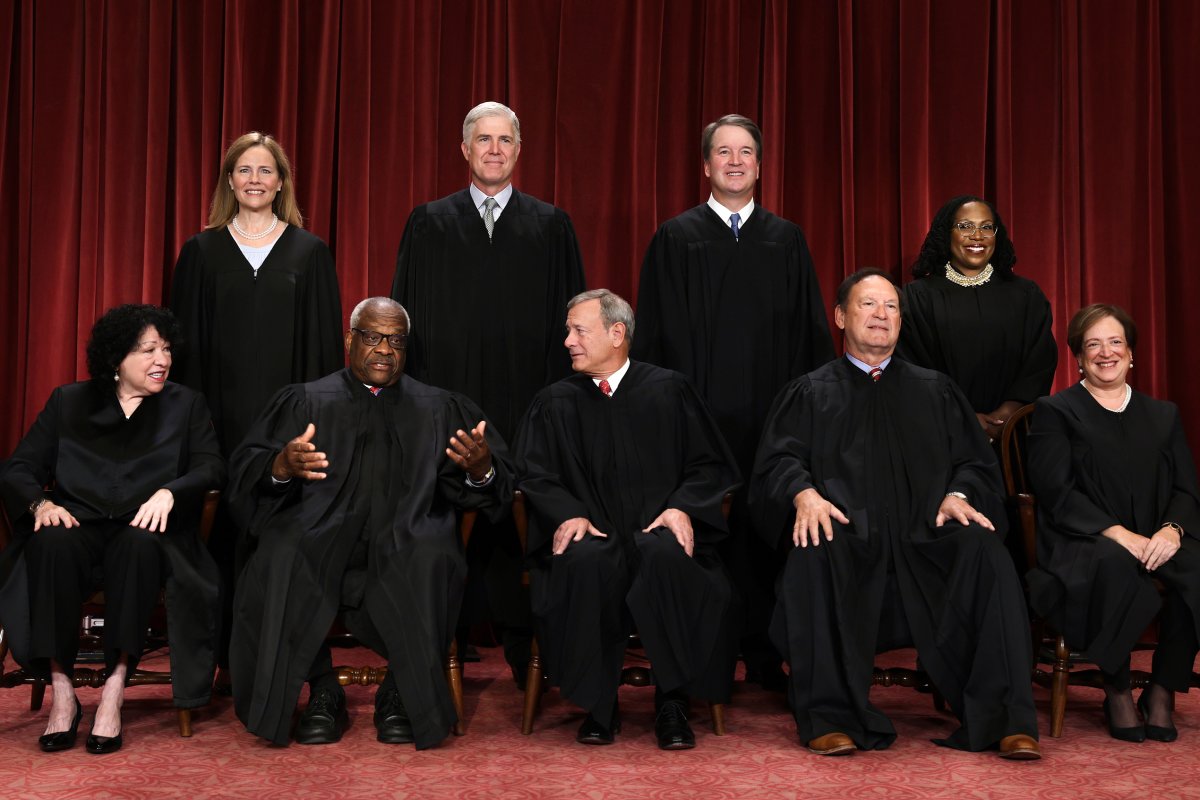- The Supreme Court's conservative majority could reject a lower court's decision to invalidate the FDA's approval of the abortion pill, mifepristone.
- In order for the Texas decision to be rejected, at least five justices would need to grant the FDA a stay of the decision.
- Chief Justice John Roberts is likely the most willing conservative to grant the stay; however, one more justice would need to agree in order for the ruling to be overturned.
As the battle over mifepristone, the widely used abortion pill, is likely heading to the Supreme Court, the panel's conservative majority could reject a lower court's decision to invalidate the Food and Drug Administration's (FDA's) 23-year-old approval of the pill.
Last week, two preliminary injunctions issued within the same hour further strained the duel over mifepristone—the most widely used abortion pill in the U.S. to end a pregnancy within the first 10 weeks.
In Texas, a judge appointed by former President Donald Trump nullified the FDA's decades-long approval, saying the agency failed to consider all the potential health and safety complications of the drug, shortly before a judge appointed by former President Barack Obama in Washington state blocked the FDA from pulling access to the pill, arguing in favor of its safety. The blockage precipitated the Texas ruling's likely path to the nation's high court.
Although the Texas case is not immediately going to the Supreme Court, the FDA has indicated it will appeal the decision, sending the case to the 5th Circuit Court of Appeals. But the appeals court, which has long leaned conservative and now includes a half dozen judges chosen by Trump, is likely to uphold the lower court's decision—a ruling that will likely be met by an appeal from the FDA to the Supreme Court.

In order for the Texas decision from Judge Matthew Kacsmaryk to be rejected by the high court, at least five justices would have to grant the FDA a stay of his decision blocking the sale of mifepristone.
It's "safe" to assume that the three liberal justices on the Supreme Court—Justices Ketanji Brown Jackson, Elena Kagan and Sonia Sotomayor—would be willing to grant that stay, Alex Badas, assistant professor at the University of Houston, told Newsweek. So, two conservative judges on the bench would need to agree to reject the Texas ruling.
Of the six conservatives, Chief Justice John Roberts would be the most willing to grant the stay, Badas said.
Even though Roberts sought to find a moderate alternative to the summer's decision overturning Roe v. Wade—one that would have avoided putting SCOTUS front and center of the abortion debate—he has faced immense public scrutiny for failing to do so.
"Part of the Chief Justice's role is to be the leader of the Court," Badas said. "Part of the job is to keep the Court in good shape and ensure that it has the public's support. And after the Dobbs decision, the public's trust and confidence in the Court dropped significantly."
Polls show that faith in the high court has dropped to a historical low in the wake of the Dobbs decision. A September survey from Gallup found that only 47 percent of Americans say they have "a great deal" or "a fair amount" of trust in the judicial branch—a 20 percent drop from two years earlier. The number of Americans who say the court is "too conservative" is also at a record high.
"Roberts has also faced a lot of criticisms in his role as Chief Justice for failing to rein in the Court's polarization during his tenure," Badas said. "Roberts probably has little desire to make another status-quo-changing decision related to abortion so shortly after Dobbs."
Roberts has sided with the liberal justices on other abortion cases, like the one from Texas in 2021 that was seeking a six-week abortion ban, but being overpowered by five other conservative justices, a grant was denied.
Yet even if Roberts were on board, the FDA would need one more justice to grant the stay.
"One of the Court's more conservative Justices (Clarence Thomas, Samuel Alito, Brett Kavanaugh, Neil Gorsuch, Amy Coney Barrett) would have to agree to a stay," Badas said. "That might be unlikely."
At the same time, Ameet Sarpatwari, lawyer and assistant professor of medicine at Harvard Medical School, told The New York Times that it could be likely because some of the justices have track records that suggest they'd reject the ruling due to "the sort of incredible disturbance of a district judge's national injunction coupled with the extreme volatility that that's going to lead to in the pharmaceutical market."
Adam Unikowsky, a lawyer who has argued cases before the Supreme Court and clerked for the late conservative Justice Antonin Scalia, told NBC News that while the FDA's arguments are strong, "I don't feel like anyone can have a high degree of certainty about the outcome of this case."
Uncommon Knowledge
Newsweek is committed to challenging conventional wisdom and finding connections in the search for common ground.
Newsweek is committed to challenging conventional wisdom and finding connections in the search for common ground.
About the writer
Katherine Fung is a Newsweek reporter based in New York City. Her focus is reporting on U.S. and world politics. ... Read more
To read how Newsweek uses AI as a newsroom tool, Click here.






